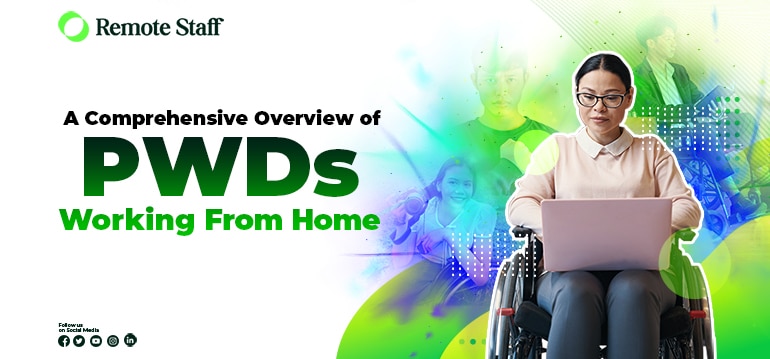For a long time, one of the main problems for Persons with Disabilities (PWDs) in the Philippines is work opportunities. Of course, this problem isn’t just limited to PWDs. Even ordinary Filipinos struggle to find work in the country. Why do you think so many Filipinos leave the country to become Overseas Filipino Workers (OFWs)?
And as the pandemic continues to menace the country, finding work has become even more difficult. Fortunately, not everything is doom and gloom, as the pandemic has shown the viability of remote work to businesses. Because of this, online jobs are seeing a surge in popularity as companies shift to a virtual setup to continue functioning.
But what does all of this mean for Filipino PWD workers? Does remote work offer the opportunity that PWD workers have been searching for so long? And how can their loved ones help them in this new kind of work setup? With these questions in mind, here are is an overview of the effects of remote work on PWD workers in the Philippines.
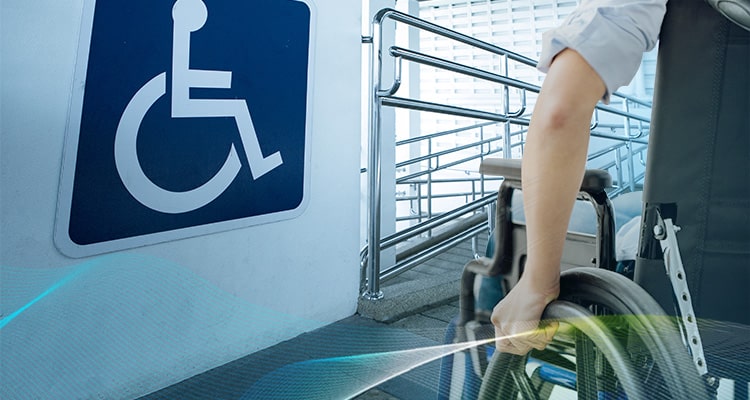
Remote Work’s Benefits to PWD Workers
Unlike a traditional work setup, remote work offers several benefits for PWD workers. For one, remote work is more accessible to PWD workers since they don’t need to go to an office to work anymore. Because they don’t need to go to an office, they don’t need to commute as well. This setup allows PWD workers to work more efficiently and safely than in an office.
Another benefit that work from home gives to PWD workers is that it helps combat the stigma against them. Remote work enables employers to see past their disabilities and see their skills instead. This situation also gives PWD workers a boost in self-confidence, as they can finally show their skills.
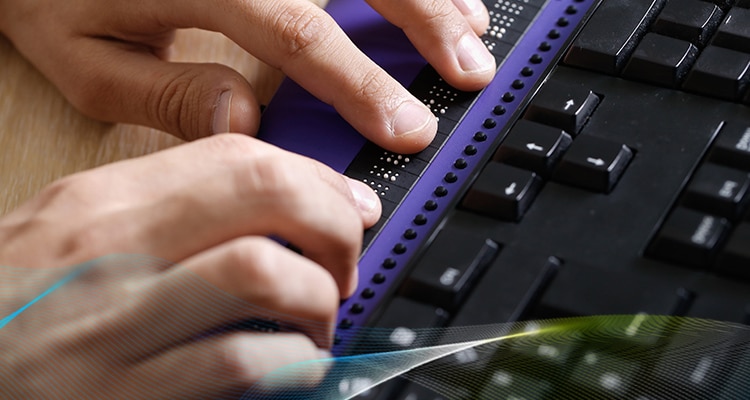
The Challenges of Remote Work to PWD Workers
That said, not everything about remote work is rainbows and sunshine. Remote work also brings challenges to remote PWDs. One of the most common challenges faced by remote PWDs is the lack of appropriate tools. This issue severely limits their ability to do their work, which negatively impacts their productivity.
Another challenge for remote PWDs is not knowing about remote work in the first place. Not every PWD has a friend or family member who knows companies looking for a PWD worker during this pandemic. And many companies are still hesitant to hire PWDs, even today. This circumstance leads to PWDs missing out on job opportunities.

The Laws that Protect and Promote PWDs to the Workforce
Of course, just like any ordinary worker in the Philippines, PWDs working from home are also protected by the country’s labor laws. In addition to these laws, PWDs also enjoy other privileges as mandated by the law. These laws include Republic Act No. 7277 and 10524, to name a few.
If there’s one law regarding PWDs that every PWD must be aware of, it’s RA 7277. This law is also known as the Magna Carta for Disabled Persons and For Other Purposes. This law contains the Bill of Rights for PWDs, including the employment rights of PWDs. The law also includes the privileges enjoyed by companies when hiring PWDs to promote their employment.
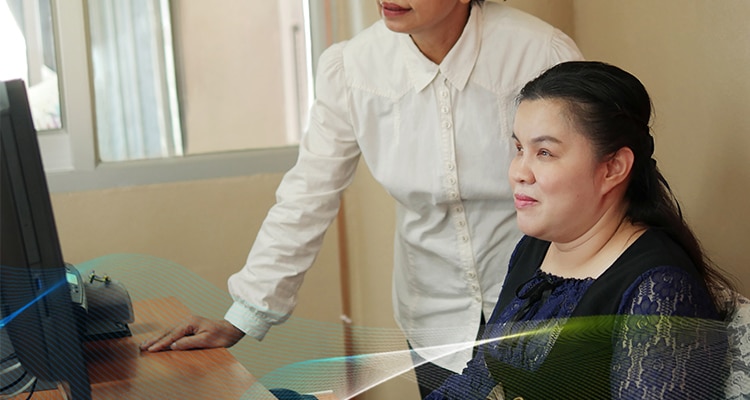
Adjusting to Remote Work
Because it’s not that well-known to most PWDs in the Philippines, adjusting to remote work can be difficult. Fortunately, there are many ways that you can do to make your adjustment easier. One of these ways is finding the time to practice self-care while you’re remote working. Small things like brushing your teeth and eating on time can help you form good habits while working.
Another way you can better adjust is by establishing your workspace at home. Having a proper workspace ensures that you can work at your best while remaining comfortable at work. For neurodivergent individuals, having an appropriate workspace helps them focus on their tasks instead of getting distracted by background stimuli.
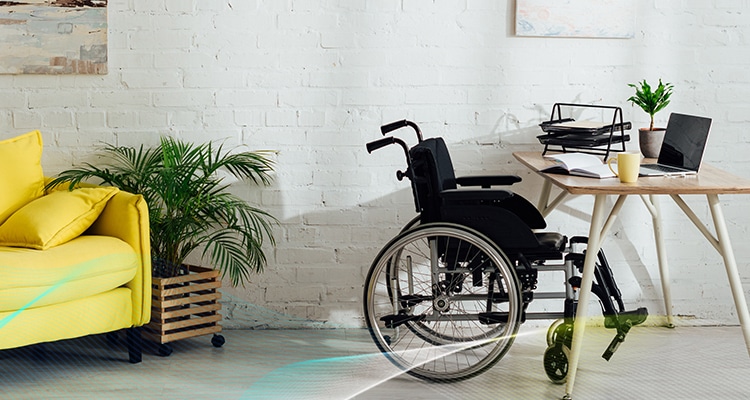
Setting Up Your Workspace
And speaking of workspaces, establishing an appropriate workspace should be one of the first things you should do as a remote PWD worker. To set up your workspace, you’ll first need your PWD-specific tools and equipment. These tools range from crutches and wheelchairs for the mobility impaired to screen readers and braille translators for the visually impaired.
Once you have all the PWD-specific tools you need, it’s time to personalize your workspace. And I don’t mean just adding stickers to it. What I mean is making sure your workspace makes you feel comfortable and focused on your job.
How can Parents and Caretakers Help Remote PWD Workers?
Just like regular workers, remote PWD workers also need help when doing their work. And because of their conditions, they require additional assistance with their work. Fortunately, because it is remote work, their parents and caretakers can help them be more productive.
So how can parents and caretakers help their loved ones at their work? First, don’t do their jobs for them. Let them accomplish it so that they can be more confident and independent with their skills. But if they do call for your assistance, be sure to lend whatever assistance they require.
How can Employers Support Remote PWD Workers?
Aside from their families and caretakers, remote PWD workers also need the support of their employers when starting out on their work. So how can employers support their remote PWD workers? Firstly, never EVER treat them like they’re any different from your other employees. Remember to always talk to them just like you would with your other regular employees.
Also, be sure to give opportunities for your remote PWD workers to showcase their skills. Doing so shows your trust in their capabilities, which helps boost their confidence in their work. In addition, try to remain in contact with your remote PWD workers. This is so that you know what they need for their work and shows that you care about them.
What is The Proper Etiquette When Interacting with Remote PWD Workers?
And before I forget, let us discuss the proper etiquette when interacting with remote PWD workers. First off, avoid asking them personal questions, especially if you’re not well acquainted with them. Questions such as “how does it feel to have that kind of disability” can be sensitive to some PWD workers.
Another thing you should remember is to converse with them the way you would with your other co-workers and boss. They are not children, nor can they not understand instructions. This mentality can severely hinder your relationship with your PWD co-workers, as this will make them think you’re looking down on them.

Conclusion
Although we’ve come a long way in promoting the employment of PWDs, many challenges remain. With the increase in popularity of remote work, many companies now see the benefits of hiring PWDs into their workforce. I hope this article will help aspiring remote PWDs to consider trying out this new work setup.

